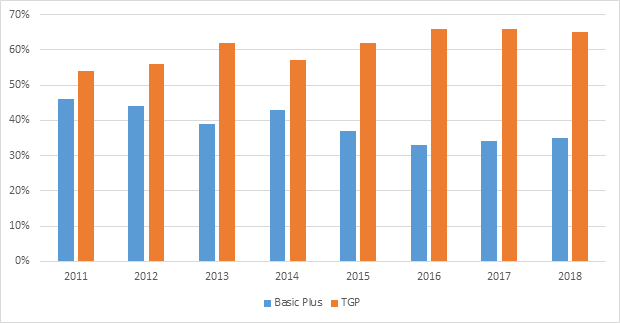
Rewarding employees for their efforts in a competitive manner is a significant challenge within any organisation.
Often employees only consider their basic salary when quoting their remuneration figure and do not include the financial benefit they receive from benefits such as a medical aid, pension fund contributions or car allowances.
This is because the benefits are not seen by the employee in cash terms and therefore not added to the basic salary.
This presents a challenge for organisations whose remuneration approach includes a basic salary plus benefits as they need to communicate the value of these benefits to their staff in order for them to be fully understood.
- What do employees value;
How do the employees know how to value the benefit;
- What role does your benefits programme play in relation to your employee value proposition and business strategy; and
- Does your employee value proposition contribute to your organisation’s ability to attract and retain staff?
People, like the world, continue to change and employees need to keep up with the ever changing workforce. One change that has occurred over the years is the remuneration approach that is adopted by organisations.
The Total Guaranteed Package approach (TGP), is the total annual guaranteed cost to a company of employing an individual. That is annual basic salary plus any guaranteed benefits.
TGP is more common at senior levels within organisations, while the basic plus benefits approach is more popular for lower level staff. There has, however, been an increase in the adoption of the adoption of the TGP approach at the lower levels of staff, illustrated in Table 1 below.
Table 1: Prevalence of the Basic Plus Remuneration approach versus the TGP approach in SA
Source of Data: 21stCentury Increase Trends Reports 2011 to 2018
Table 1 illustrates the increasing popularity of the TGP approach. A significant reason for this is the flexibility that comes with a TGP remuneration approach and how attractive flexibility is to employees. Similarly, the TGP approach is also attractive to employers as this allows them to control their employee costs.
Discovery’s Medical Inflation Index indicates that, between 2008 and 2018, medical inflation (defined as the annual increase in claims received by medical schemes) has increased by an average of 11.3% per year. This is about 5.3% above the Consumer Price Index (CPI).
All organisations have a business strategy they aim to achieve and there are many ways to realise this strategy. Without being able to attract and retain the right employees this would become a futile exercise as employees are considered the lifeblood of the organisation.
An organisation’s benefits programme can play a role here. Does the benefits programme add value to employees and promote them to be action-oriented to towards the company’s strategy?
The remuneration approach of an organisation should be geared in such a way that the needs of employees are met in conjunction with the needs of the organisation. How is that linked to the organisation’s benefits? Alexander Forbes says benefits should be packaged in a way that teaches employees how to manage debt, budget and save.
Consider the employee with poor financial management skills and its effect on their performance.
This promotes the possibility of moving away from the conventional employee benefits structures which are often based on a one-size-fits-all solution for all employees.
As the rising costs of benefits continue to put pressure on employers, the need for a review of the current benefits strategy becomes more important. Organisations should consider the following:
- The needs of both the organisation and its employees
- Employee benefits programmes have to link to the organisations values. This ensures living the values of the organisation becomes tangible to the employees.
- All benefits programmes need constant review due to the changing workforce in an uncertain economic environment in conjunction with the value systems of different generations
As the Fourth Industrial Revolution gains momentum, organisations will need to be agile in their employee value proposition to ensure the attraction and retention of the required talent and skills.
This will indeed change the landscape of benefits offered by organisations and impact what benefits employees’ value. This will, in turn, lead to organisations evolving their business strategies in accordance with the changing environment.
The result of this is that employees and employers are reviewing their benefits packages and their ability to promote their organisation as a desirable employer.
Reward programmes have to balance the long term goals for the employee, be it skills development, retirement planning or health insurance and for the goals of the employer such as attracting and retaining employees to meet the goals of the organisation with a healthy workforce.
• Bryden Morton is executive director of 21st Century and Tebogo Sethabela is a reward intern.




 Publications
Publications
 Partners
Partners









